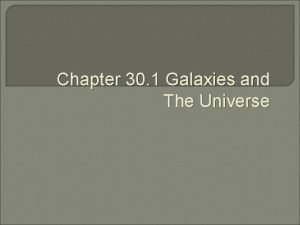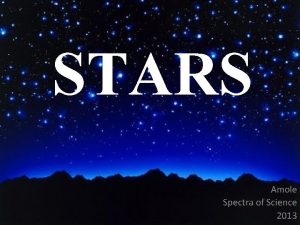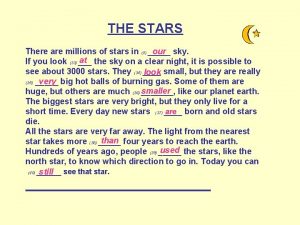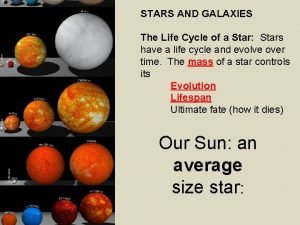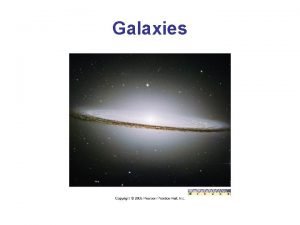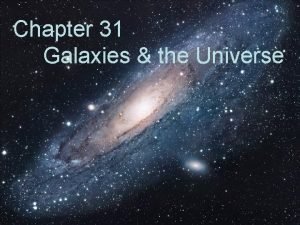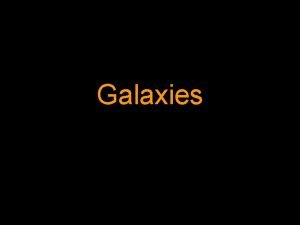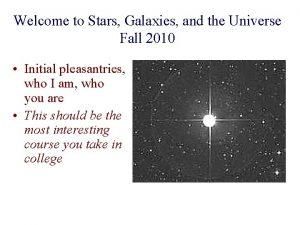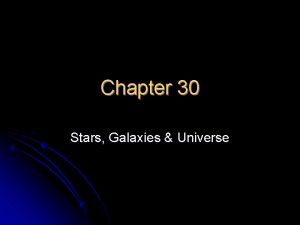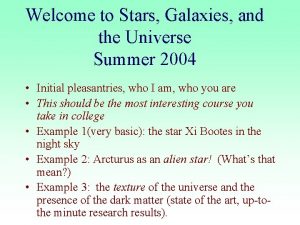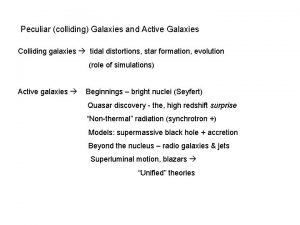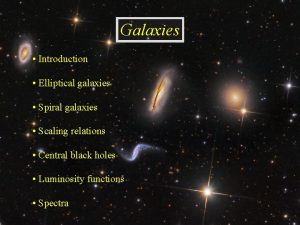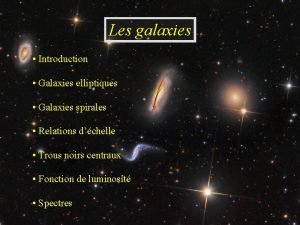Welcome to Stars Galaxies and the Universe Fall










- Slides: 10

Welcome to Stars, Galaxies, and the Universe Fall 2010 • Initial pleasantries, who I am, who you are • This should be the most interesting course you take in college

Welcome to Stars, Galaxies, and the Universe Fall 2010 • Initial pleasantries, who I am, who you are • This should be the most interesting course you take in college 18 Scorpii…my favorite star

Let’s see where 18 Scorpii is in the night sky, using the on-line stars charts

So what’s the big deal with 18 Scorpii relative to all the other stars in the night sky? 18 Scorpii is often referred to as “The Solar Twin” What does it mean for stars to be “twins” ?

Example 2: The “Dark Matter”

Modern Astronomy has discovered that most of the matter in the universe is not normal matter like that which makes up rocks and your bodies. Only about 20% is “Baryonic matter”. What is the evidence for this statement? If not “normal matter”, what is it?

Example 3: Arcturus (see it tonight) Distance: 37 light years

Arcturus (bright star overhead) as an immigrant from another galaxy The Milky Way (and other galaxies) catch and devour small galaxies

Stay tuned! Details from the Syllabus

The Sky Tonight • The Sun sets (7: 48 PM) • Arcturus and Spica in the • • • west (stars) Three planets in the western sky after sunset (Venus, Mars, Saturn) Antares (star) in the south Vega (star) and the Milky Way overhead The Andromeda Nebula in the east Jupiter (planet) in the east after 9 PM or so
